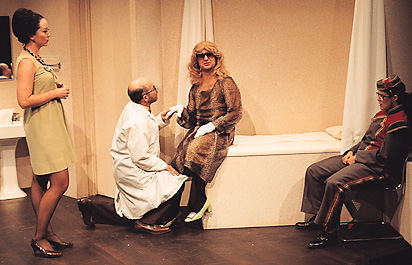Black humor , also known as dark humor, is a term that refers primarily to a kind of bitter and generally cynical satire. Much black humor is directed against greed, narrow-mindedness, complacency, and hypocrisy. The material of black humor often features dark themes, such as death, violence, and illness. Black humor frequently satirizes society’s institutions, including government bureaucracies, the military, religious communities, and large corporations, depicting them as dehumanizing organizations. Black humorists often attack the absurdity they see in life itself, as well as society’s ills. The awareness of human mortality is basic to black humor, giving many of the works a desperate, even hopeless attitude.

Black humor as a literary concept became prominent in the 1960’s. But critics have found elements of black humor in the writings of the English author Jonathan Swift and the French philosopher Voltaire in the 1700’s and in the writings of some earlier authors. Features of black humor appear in the Theater of the Absurd, an experimental drama movement that emerged in France in the 1950’s. A number of American writers have been called black humorists, including Flannery O’Connor and Don DeLillo. A number of motion pictures exhibit elements of black humor, notably Dr. Strangelove (1964), directed by Stanley Kubrick, and Fargo (1996), directed by Joel Coen.
